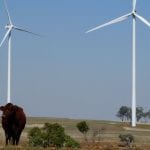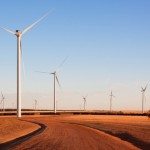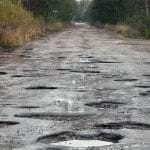Around The Web
Survival of natural world is in balance, says wildlife chief
Ana María Hernández says shifting society out of ‘comfort zone’ is difficult, but young people are inspiring
The survival of the natural world upon which humanity depends hangs in the balance, according to the new chair of the global scientific body for biodiversity.
Ana María Hernández said she did not know if society could make the major changes needed to stop the annihilation of wildlife, which some scientists thought was the start of a mass extinction. It would be very difficult to shift society out of its current “comfort zone” of business-as-usual, but she thought the much higher environmental awareness among young people was a reason for great optimism.
Continue reading...ACT looks beyond 2020 renewables target, seals community solar off-take deal
 The ACT doubles down on its renewable energy commitments as Australia's largest community solar farm moves towards construction after securing funding.
The ACT doubles down on its renewable energy commitments as Australia's largest community solar farm moves towards construction after securing funding.
The post ACT looks beyond 2020 renewables target, seals community solar off-take deal appeared first on RenewEconomy.
Western Australia’s biggest wind farm now fully owned by retail super fund
 W.A.'s 207MW Collgar wind farm now entirely owned by Rest Industry Super, after the minority shareholder bought up UBS Asset Management's 60% stake.
W.A.'s 207MW Collgar wind farm now entirely owned by Rest Industry Super, after the minority shareholder bought up UBS Asset Management's 60% stake.
The post Western Australia’s biggest wind farm now fully owned by retail super fund appeared first on RenewEconomy.
First Dog on the Moon and the guest of honour in the desert who never turned up | First Dog on the Moon
Rangers and scientists and a white cartoonist converge for the night parrot but where is the night parrot???
Greetings from Paraku. I’m here at the Species of the Desert Festival having a lovely time. We are 12 hours drive eastish from Broome on the shores of (currently empty) Lake Gregory (Paraku) near the community of Mulan. It is very in the middle.
This festival is a gathering of Indigenous rangers who live and work on country and also sometimes get together at events like this to share knowledge, do some organising and have a friendly chat. For a humble and very white cartoonist from rural Tasmania it is another world and I am feeling very lucky to be here and thoroughly enjoying myself – although the red dust gets into literally everything, even one’s undies (sorry TMI but it really does).
Continue reading...The real energy revolution is happening in our homes
 To make energy more affordable and future-proof our grid, we must better coordinate rooftop solar, batteries and other devices owned by consumers.
To make energy more affordable and future-proof our grid, we must better coordinate rooftop solar, batteries and other devices owned by consumers.
The post The real energy revolution is happening in our homes appeared first on RenewEconomy.
Rule changes, reform needed to address poor network frequency control
 Having the power system frequency poorly controlled is like driving a car on a rough road.
Having the power system frequency poorly controlled is like driving a car on a rough road.
The post Rule changes, reform needed to address poor network frequency control appeared first on RenewEconomy.
The reason Australia doesn't have nuclear power: the workers fought back | Jeff Sparrow
Workers have been fighting uranium mining for decades – the environment needs mass civil disobedience
What do Clive Palmer, Tony Abbott, Cory Bernardi, Barnaby Joyce, Mark Latham, Jim Molan, Craig Kelly, Eric Abetz and David Leyonhjelm have in common?
No doubt many answers will come to to mind. But whatever else unites them, they all support nuclear power.
Continue reading...Beryl solar farm reaches full output after single month of commissioning
 Beryl solar farm reaches full output just a month after energisation.
Beryl solar farm reaches full output just a month after energisation.
The post Beryl solar farm reaches full output after single month of commissioning appeared first on RenewEconomy.
Department publishes partnerships risk appetite statement
Department publishes partnerships risk appetite statement
Department publishes partnerships risk appetite statement
Curious Kids: why do spiders need so many eyes but we only need two?
CO2 and how it links manure and fizzy drinks
Praise for the Partnerships Statement
Climate change: Cashing in on CO2
Australia's extinction rate one of the worst on the planet: UN report
Would you eat meat grown from cells in a laboratory? Here's how it works
Vestas buys into 4GW Walcha wind, solar and storage hub in NSW
 Vestas buys majority stake in 700MW wind project, which forms an important part of the largest wind, solar and storage hub planned for Australia's main grid.
Vestas buys majority stake in 700MW wind project, which forms an important part of the largest wind, solar and storage hub planned for Australia's main grid.
The post Vestas buys into 4GW Walcha wind, solar and storage hub in NSW appeared first on RenewEconomy.
Private sector must be forced to invest in ‘green revolution’, says Labour
Labour will back measures deterring investment in fossil fuels as part of a new drive to stop the financial sector from funding global heating, John McDonnell will reveal this week.
In the latest attempt by Labour to display its green credentials, the shadow chancellor will use a speech in the City on Monday to commit to using the “full might of the Treasury” to tackle the issue. He will commit the party to forcing the private sector into investing in the “green industrial revolution”.
Continue reading...Great Pacific garbage patch: giant plastic trap put to sea again
Floating boom is designed to trap 1.8 trillion items of plastic without harming marine life – but broke apart last time
A floating device designed to catch plastic waste has been redeployed in a second attempt to clean up a huge island of garbage swirling in the Pacific Ocean between California and Hawaii.
Boyan Slat, creator of the Ocean Cleanup project, announced on Twitter that a 600-metre (2,000-foot) long floating boom that broke apart late last year was sent back to the Great Pacific garbage patch this week after four months of repair.
Continue reading...


